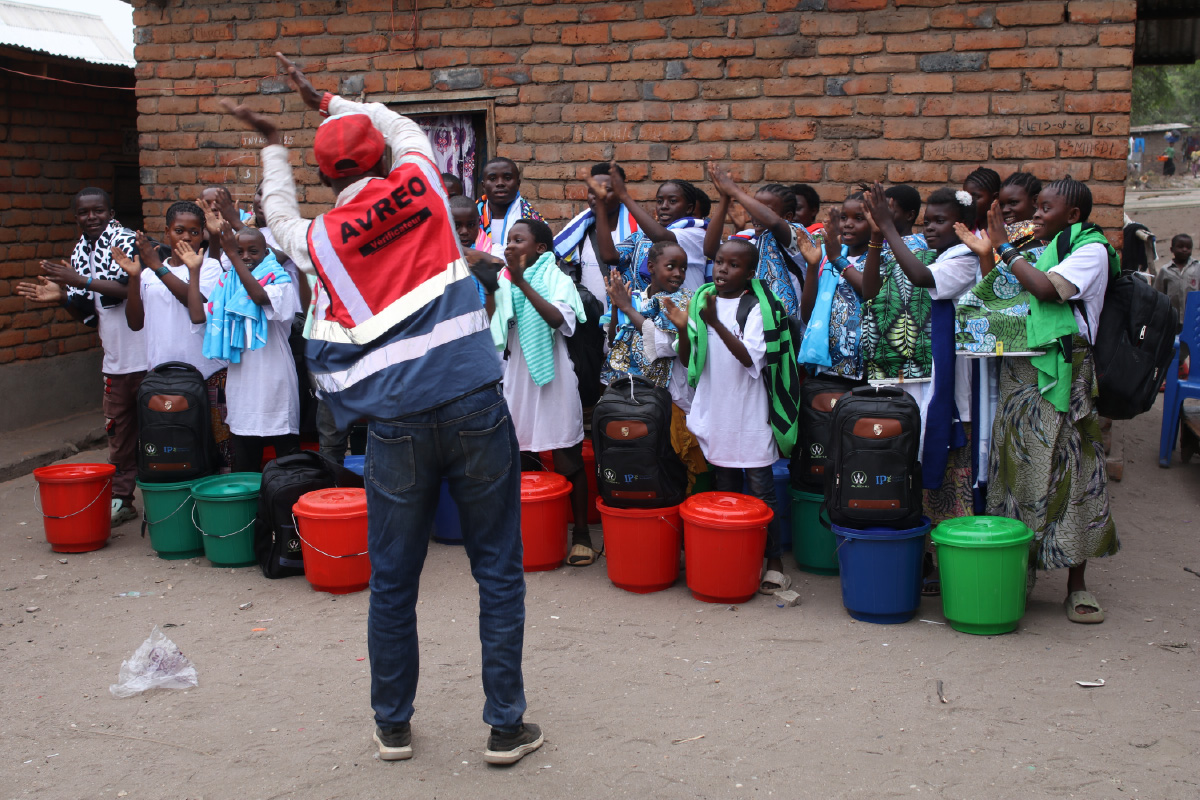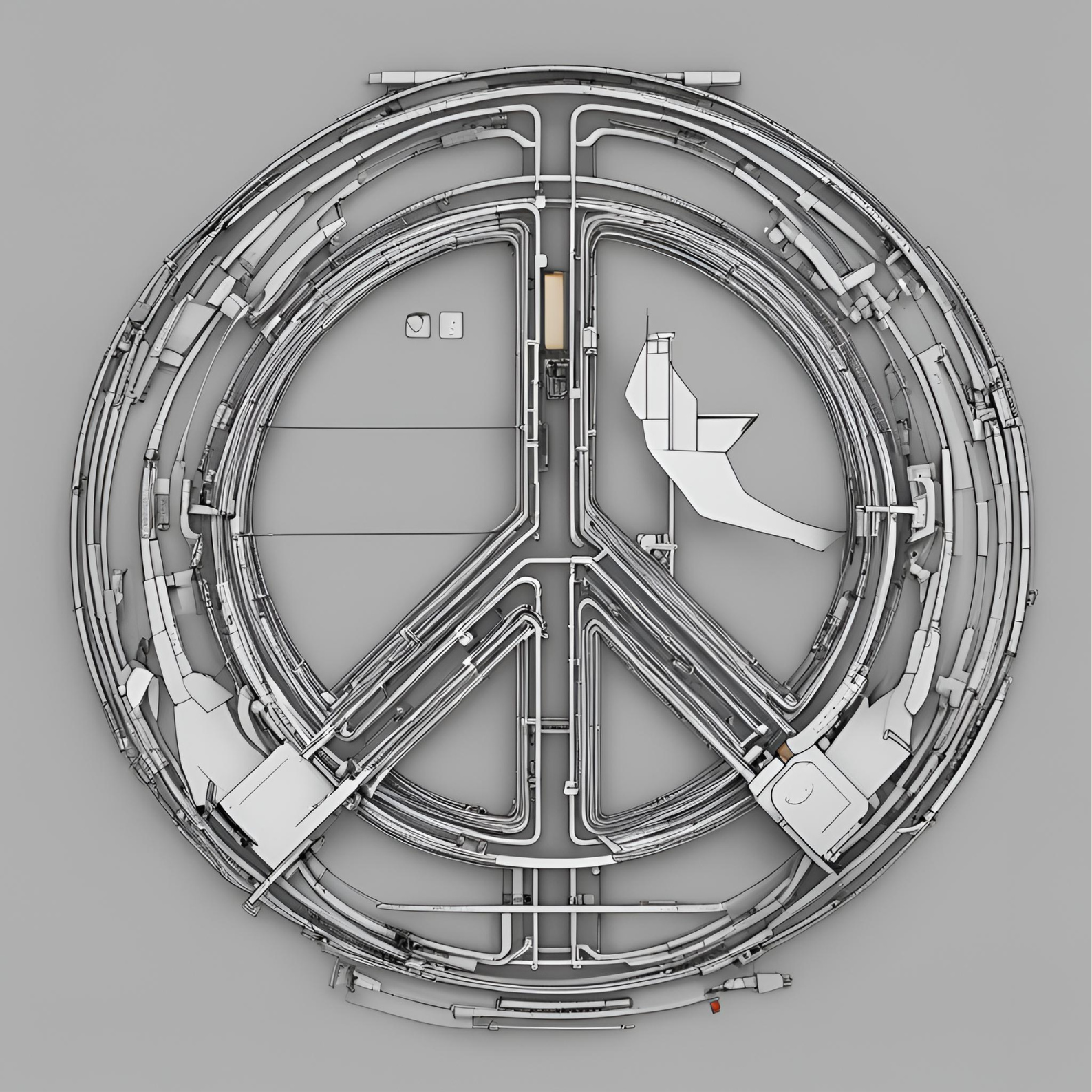It all started with listening.
Since November of 2021, IP has served as the “boots on the ground” partner of the Carter School at GMU as we have worked toward a large-scale peace initiative with dozens of armed groups in the South Kivu province of the Democratic Republic of the Congo. The idea has been to plan, execute, monitor, and evaluate a truly local and “bottom up” approach to peacemaking and peacebuilding in one of the world’s most intractable and challenging conflicts. To do this, we’ve opened our ears and minds fully to the ideas and peace strategies of our Congolese partners AJDC, which was founded and is staffed by former child combatants.
Incredibly but as expected, their ideas are working.
After conducting a wide inquiry on prospects for peace in South Kivu, an initial “pilot” peace gathering in November 2021 brought together members of several armed groups in the area, along with several members of civil society and the government to discuss what a move toward sustainable peace could look like. After this, the team conducted individual follow up meetings with the armed groups in the area that attended these preliminary talks to discuss prospects for a move toward a lasting peace which included their individual group interests. These meetings took place in their territory to connect with each group in their space.
Additionally, and concurrently, in January of 2022, we hosted a gathering of women community leaders to discuss the outcomes of the preliminary talks in November, specifically inquiring from them about how the possible solutions suggested could be comprehensively, but realistically, integrated into the home and community life. The outcomes were both insightful and invaluable to the planning of the subsequent gathering between armed group and government leaders.
Steps for Peace
In March 2022, we then then hosted a gathering of some 120 individuals in Uvira, South Kivu to discuss sustainable peace solutions among armed groups and various communities across three of the province’s five districts including Uvira, Mwenga, and Fizi.
The goals of the March dialogue were three-fold:
- Deliberate and conclude upon a plan of action for peace encompassing the three districts.
- Promote contemporary and sustaining dialogue between armed group, government, and community leaders and members toward sustainable solutions to inter-community conflict and consistent communication paths between conflicting parties.
- Produce a model for growth and reproduction of peacebuilding efforts in South Kivu that would include community prosperity, and intercommunity cooperation.
The results of the dialogue and subsequent peace process returned expected, unexpected, but ultimately encouraging results. In response to several armed groups’ desire to demobilize and return home, but with challenges faced by the government to facilitate this, we formulated a response to the groups’ willingness to demobilize.
Dubbed the “community reintegration phase,” this work incorporates local villages and their leaders into a community-level reintegration strategy centered on economic development which not only creates jobs for local armed group members, but increases the socio-economic capacities for the villages, thereby discouraging recidivism and future recruitment.
Encouragingly, decisions to pursue peace have taken a tenuous hold among some of the armed groups engaged in our processes. As reports continue to come in of armed groups both holding to and even advocating for peace among themselves and other groups, we’ve seen a noted decline in violence among several groups and have even seen armed group members returning home as our community reintegration strategy is now underway in two villages, with another 9 being presently planned, and a total of 21 as the final goal.
Sustainable, Local, and Lasting Solutions
While we recognize that “locally led peace” is not a new idea, and certainly gathering conflicting parties in South Kivu has been done before, we are working to reform both processes to incorporate local ideas, make peace dialogue more efficient, and follow up with reintegration strategies led by the communities from which the armed groups derive. Toward this end, we are seeking:
- Continued violence decline and armed group village reintegration
- Accompaniment, not placement, of hybrid partnerships which include the purposeful diminishment of professional power structures
- Diversity of attendance at peace talks and inclusion of both current and former fighters in the peacemaking process as well as women, youth, civil society, government, and religious leaders.
- Local press coverage and narratives, as well as locally designed monitoring and evaluation
- Absence of outsiders during the execution of peace dialogues
- Involvement and ownership by the government despite challenges
- Amplification of the nexus of women’s lived experience in the home, community, and conflicts to centrally locate their visions for dynamic and integrated peacemaking strategy
- Reduction of the role of money at all phases of peacemaking and peacebuilding, especially toward ending “NGO economies.”




